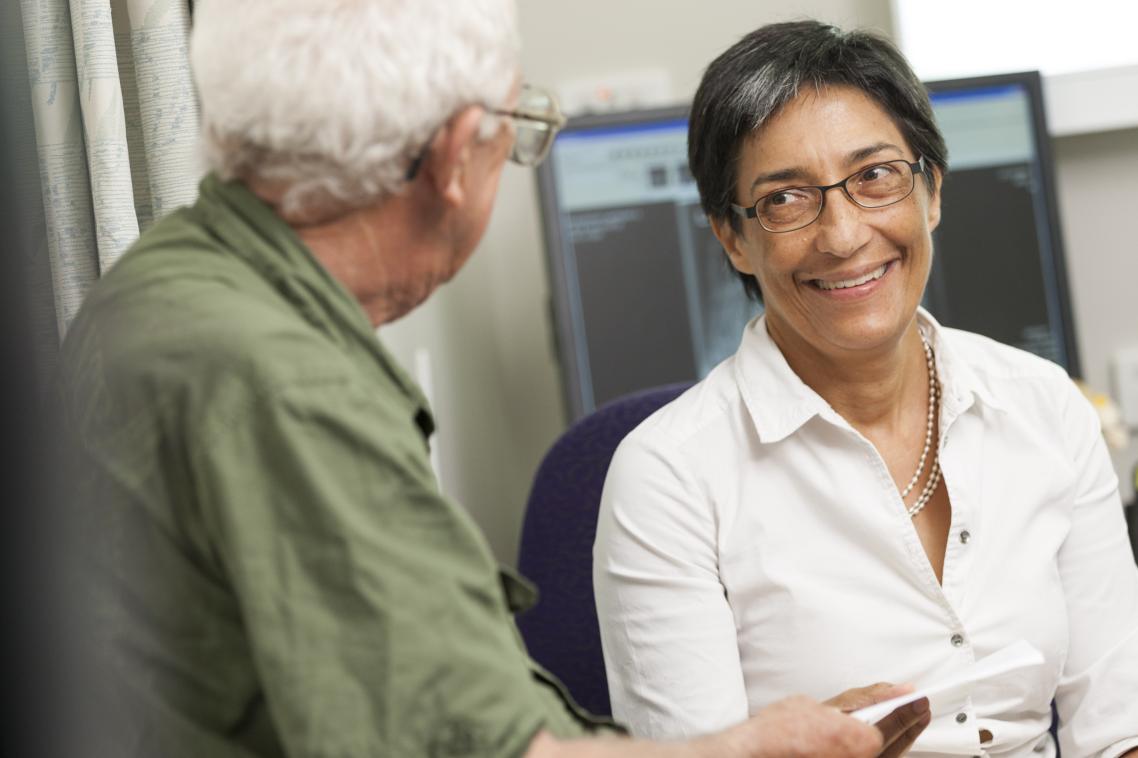Early clinical trial success for new rheumatoid arthritis treatment

University of Queensland researchers have developed a world-first vaccine-style therapeutic approach to treat rheumatoid arthritis, a debilitating disease affecting more than 450,000 people in Australia.
UQ Diamantina Institute researcher Professor Ranjeny Thomas said results from the phase one clinical trial, published in Science Translational Medicine today, demonstrate the new treatment is safe and effective in supressing the immune response.
Rheumatoid arthritis is a disease in which the immune system attacks healthy tissues, particularly in the joints, causing inflammation, pain and deformity.
Professor Ranjeny Thomas from The University of Queensland on Vimeo available for media use.
Professor Thomas said the treatment targeted the underlying cause of rheumatoid arthritis.
“Current therapies only treat the symptoms and slow the progression of the disease,” Professor Thomas said.
“We have designed a vaccine-style treatment or ‘immunotherapy’ specifically for individuals carrying high-risk rheumatoid arthritis genes and specific rheumatoid arthritis antibodies, called anti-CCP.
“This type of rheumatoid arthritis is called ‘CCP-positive’ and accounts for the majority of cases.
“Our immune system is made up of specialised cells that move through blood and tissue, preventing disease and fighting infection by distinguishing between what is the body’s own healthy tissue and what is foreign.
“This treatment teaches the patient’s immune system to ignore a naturally occurring peptide that is incorrectly identified as ‘foreign’, resulting in the production of CCP antibodies and causing inflammation.
“A personalised immunotherapy was prepared for each patient by taking a sample of their blood and extracting a particular type of immune cell called dendritic cells.
“The patient’s dendritic cells were then challenged with the ‘foreign’ peptide and an immune system modulator.
“The treated dendritic cells were then injected back into the patient.”
Professor Thomas said a single injection of the patient’s own immune-modified dendritic cells was found to be safe and to help supress the immune response in rheumatoid arthritis.
“This in turn was associated with reduced inflammation.
“At this stage, the technique would not be ideal for widespread treatment or prevention of rheumatoid arthritis because it’s costly and time-consuming.
“However, the promising results of this trial lay the foundations for the development of a more cost-effective, clinically-practical vaccine technology that could deliver similar outcomes for patients.
Professor Thomas is working on a delivery technology with Dendright Pty Ltd (a UniQuest start-up company) in collaboration Janssen Biotech Inc., one of the Janssen Pharmaceutical Companies of Johnson & Johnson.
If the delivery of this technology proves successful in patients with rheumatoid arthritis, it could also be applied to other autoimmune diseases such as Type 1 diabetes.
Watch a video of Professor Ranjeny Thomas explaining the new treatment.
Media: UQ Diamantina Institute Communications and Marketing Manager Kate Templeman, +61 7 3443 7027, +61 (0)409 916 801; k.templeman@uq.edu.au.
Topics
Related articles

Should you consent to your doctor using an AI scribe? Here’s what you should know.

How a drone delivering medicine might just save your life
Media contact
UQ Communications
communications@uq.edu.au
+61 429 056 139
